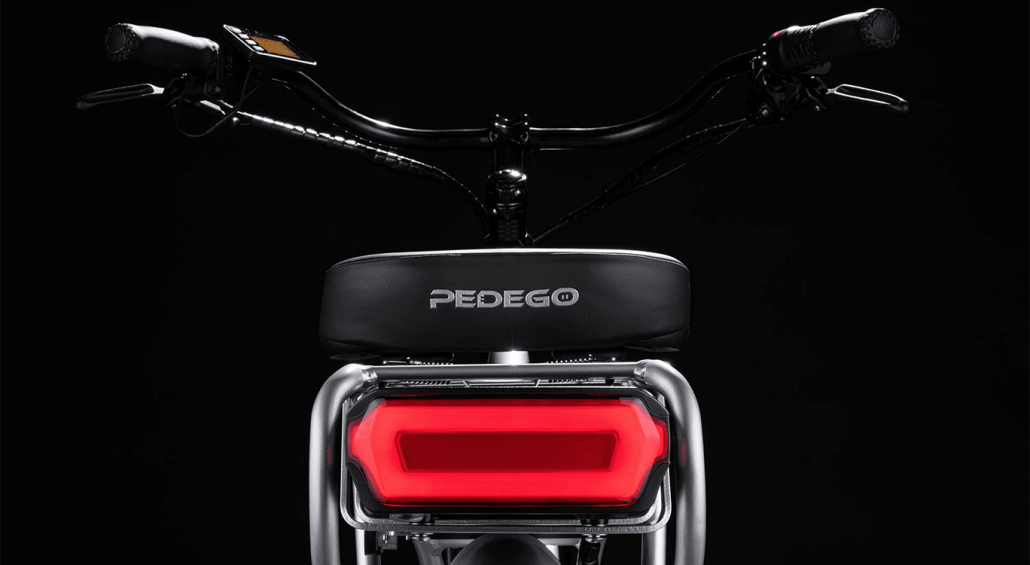Pedego Responds to Concerns Raised by Ebike Battery Fires
December 06, 2023

News stories about e-bike battery fires, especially out of New York City, are causing fear among electric bike owners.
We get it! The media coverage is startling and yes, your lithium-ion battery packs a large amount of energy.
This same news of ebike fires has us frustrated here at Pedego Canada as problem manufacturers are not being called out. All ebikes are lumped together in media reports when cheap, unregulated products are inundating the market to detrimental effect.
“We want to reassure our customers that when charged, stored and recycled properly, your Pedego battery is safe to use,” says Pedego Canada’s Mike Clyde. “This is because we take great care in production.”
Pedego batteries are made with premium brand name lithium-ion cells supplied by top manufacturers: LG, Panasonic, and Samsung. They are covered by a 5-year prorated warranty because we’re so confident in the quality of the components in them.
These Li-ion batteries are model 18650, named after their size (18mmx65mm). There are two types of 18650 cells – those made by reputable, name brand suppliers and everything else. Name brand cells are much safer and more reliable than cheaper cells.
Emergency Officials and Industry Responding
The rash of ebike battery fires in New York City prompted New York City Fire Department to focus their annual symposium on the topic. Veteran bike engineer Michael Fritz was in attendance as an independent industry expert with 35 years’ experience. Fritz was also instrumental as director of engineering on the Pedego team.
Fritz says unless an ebike company uses name brand battery cells, he’s out. Fire hazards are largely due to lower quality batteries being used improperly, including charging while unattended.
“Do Pedego lithium-ion battery packs pose an unreasonable risk to customers? My answer is no – you can have confidence in this product,” Fritz says. “Pedego does an excellent job. The best in the industry.”
Fritz explains why an ebike battery may fail. Heat, pressure, and water are the enemy of your battery. As well, if Li-ion cells are made poorly and/or there are improper cell protection separators, the rate of cell failure increases. If a single cell fails, propagation is relatively slow. If multiple cells fail at the same time, the results can be explosive.
Pedego is not without fault. Unfortunately, in 2013, Pedego received reports of six battery fires, and subsequently recalled 5000 battery packs. We acted fast and took the matter seriously. An ensuing investigation found that our supplier was not using a clean room for manufacturing. As a result, Pedego now buys solely from the top name brand suppliers and no further issues have arisen.
Always Striving for Better
Even without further incident, Pedego continues to strive for better. Last year, Chief Production Officer, Paul Auclair started the process toward UL certification, a process which continues today.
“For product reassurance, Pedego wants certification at the highest level. The process will take time, but we are pleased to have the project underway prior to the recent Consumer Product Safety Commission recommendation,” says Auclair.
Relevant Standards Currently (April 2024) ‘On-The-Books:’
- ANSI/CAN/UL 2580: Standard for Batteries for use in Electric Vehicles; standard for battery cells (Certificate in-hand.)
- ANSI/CAN/UL 2849: Electrical Systems for e-Bikes (Moto, Cargo, Fat Tire Trike – certificate in hand, process ongoing.)
- ANSI/CAN/UL 2271: Batteries for Use in Light Electric Vehicle Applications (In process.)
- UN38.3: Transportation Testing for Lithium-lon batteries: required for international shipment of Li-lon batteries (Certificate in-hand.)
- ISO/ANSI 4210: Safety Requirements for Bicycles: establishes safety requirements and specifications for the design, manufacturing, and testing of all bicycles, including eBikes. (In process.)
What to Look for When Buying an Ebike
So, you can feel safe and confident in your product, it’s important to do your homework and shop smart in order to make a solid decision about your electric bike purchase. It’s especially important to research the battery as it makes up the largest cost of your ebike.
Do they back their product with a warranty that makes you feel reassured? What’s that warranty look like?
Ask the seller what make of cells are used in their bike’s lithium-ion battery. To ensure it complies with relevant safety standards, what certifications does your product have?
Does the seller even know the answers to your questions?
How to Take Proper Care of your Ebike Battery
While Pedego is confident in our battery safety, even with the best cells and top certification, proper care and attention should always be taken. Dangerous events can still possibly occur.
Charging
- Do not charge the battery unattended or overnight. Monitor the charge and unplug when fully charged. Almost all battery fires occur while charging.
- Charge the battery on the bike or, if off the bike, ensure it’s on a non-flammable surface in a clean, dry location away from flammable materials.
- Only use the charger that was supplied to you at the time of your purchase. Never attempt to charge the battery with a different charger or power supply. (A suspected cause of NYC battery fires is use of incompatible chargers.)
- Charge the battery in an area with a working smoke detector.
- Do not attempt to charge the battery when it’s cold – less than 7 degrees Celsius.
- If the battery is dropped, damaged, overheats or is immersed in water do not attempt to charge it. Store it in a safe place (preferably outdoors) and call your local Pedego dealer for appropriate next steps.
Storage
- For extended periods of non-use, store your battery in a clean, dry environment that has a temperature between 4 and 25 degrees Celsius. It’s best stored between 30-40 per cent charge. Avoid storing 100% charge .
- When transporting your ebike, take the battery off the bike. Simple but smart.
Care and Recycling
- Do not attempt to have your Pedego battery refurbished.
- Do not open or otherwise tamper with your ebike battery. There is no reason to do so as there are no serviceable parts inside it.
- When your battery reaches its end of life, it’s important not to throw it away. Please return it to your local store for safe and proper recycling. Pedego Canada is a Call2Recycle participant.
- Do not replace your battery with a pack from a third-party supplier.
Acceptance of Risk
Electric bikes are relatively new on the scene and alarming news coverage does little to reassure consumers leery of the technology.
Yes, your ebike battery has a great deal of stored energy. Fritz explains for perspective, a car with its full gas tank in your garage contains enough stored energy to propel a 3,000 lb car 400 miles. This is substantially more than your ebike battery.
Even a candle lit on your dining room table carries risk to your safety at home with its threat of fire or particulate in the air.
Yet, we’ve become accustomed to these risks and how to manage them in our minds and in our homes. Let us know if you have any further concerns as we are happy to provide more reassurance about your Pedego ebike and battery.
Read more from Consumer Report.


